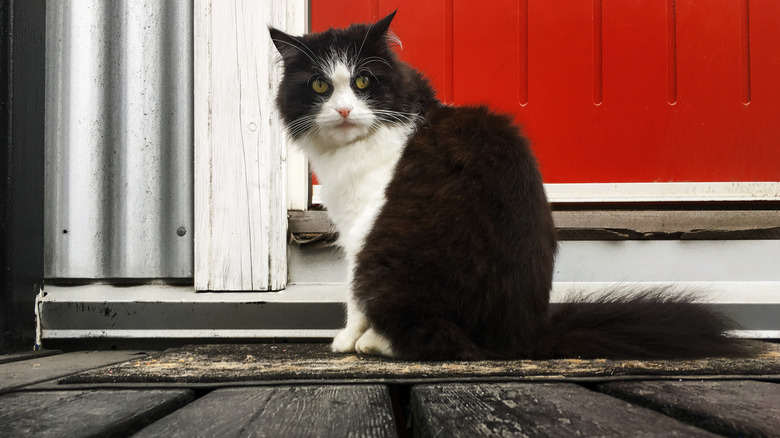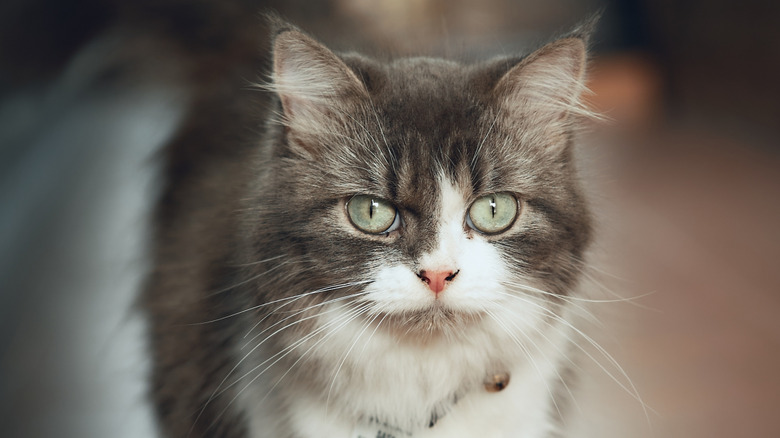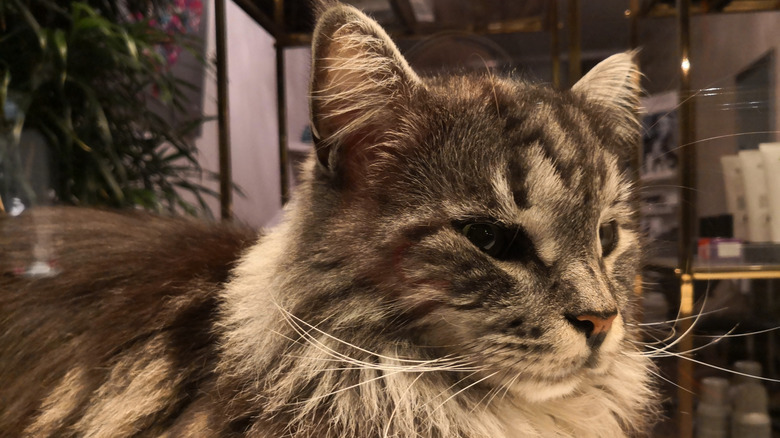A Protective Cat Breed Known For Its Long Fur Can Growl Like A Dog
When you think of pets that guard you from intruders and neutralize threats, cats probably aren't the first to come to mind. Picture an animal that provides security. You're likely envisioning a dog from a protective breed. A big one. With big teeth, a loud bark, and a menacing growl they use to warn unfamiliar people that they mean business.
But believe it or not, there's also a cat breed out there that growls for territorial and protective reasons. The Cymric, a long-haired variety of the Manx breed, is known for a lot of things, and growling like a dog when they feel threatened is one of them. The Cymric was originally bred as a mouser, so like many cats, they still have that propensity toward hunting. However, unlike many cats, the Cymric will growl and attack when they sense danger, and some have compared the sound of their growl to that of a dog.
However, as long as Cymrics feel comfortable, they are quite even-keeled and playful cats. They're happy to learn tricks and will play games like fetch. With their penchant for getting territorial and feisty if frightened, you may be wondering if these intelligent felines can make good family cats in addition to being a protective breed.
Are Cymric cats good with kids?
Cymrics display many of the typical Manx cat breed characteristics. They don't love when their personal space is invaded. They will growl and even swipe or attack if they feel scared enough. A Cymric might not be the first choice of cat for a family with kids, especially very little ones. However, Cymrics are generally social cats who like meeting people and are known to be affectionate. As long as they're not threatened, they're actually very laid-back.
If your kids are old enough to be able to interact with your Cymric respectfully, these cats can make great pets for families with children. Another thing to consider with Cymrics is bringing a young kitten into the family. The more socialization at a younger age, the more tolerant they'll be of hugging and poking and prodding and other things little kids like to do to their pets. If you know about Manx cats, you'll know one distinct physical trait that Cymrics display is the lack of a tail. This can be a plus if you have young children who like to pull on things.
Cymric cat care
Cymrics are gorgeous long-haired cats, which means they require daily brushing. Other than that, they're fairly low maintenance. They're happy to play with toys, run around, and learn tricks, but they're not the most active cat breed out there. How much should you play with your cat each day? Well, that is dependent on your individual cat, but it's usually a good idea to play with your Cymric at least for a little while in the evening so everyone in the house will get a good night's sleep.
They're also quite intelligent, which makes them fairly easy to train. They can learn to fetch and walk on a leash. These kitties are so smart that they will teach themselves how to open doors with their paws. Cymrics, like most cats, are master jumpers, but you can train them not to hop onto the counter and put their paws in your pizza.
The Cymric is a generally healthy breed, but their lack of a tail can cause spinal problems. This includes a group of conditions called Manx syndrome. Manx syndrome includes spina bifida and spinal cord dysplasia that can lead to paralysis, incontinence, and infections. Your best bet for avoiding dealing with these problems is to buy a cat from a reputable breeder who will take care of any issues while their cats are still kittens.


